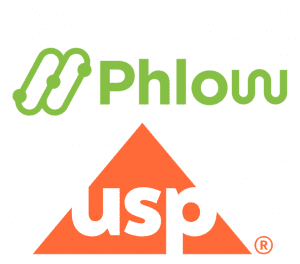
Mastering CRO Pharma Collaborations: A Guide to Successful Partnership
Discover the intricate process of how pharmaceutical companies collaborate with Contract Research Organizations (CROs) for efficient drug development and testing. Learn more about Pharma CRO partnerships in collaboration with Noble Life Sciences, the sponsor of this article.
Brought to you by Noble Life Sciences | September 7, 2023
| BioBuzz has been building life science communities for 14 years because we believe in the power of personal networks to unlock your career potential. For our next chapter, we’re building upon the success of our community to help solve today’s greatest challenges in hiring and career development. There is a better, more equitable way to connect talent with opportunity… and we’re building it. |
Throughout the course of drug development, a biotech or pharma company will likely need to partner with a Contract Research Organization (CRO). CROs provide a range of services, which can vary from CRO to CRO (or CRMO, which are Contract Research & Manufacturing Organizations).
It is common for CROs to offer the following:
- Research management services, including help with clinical study design
- Identification of clinical research sites
- Project management services, including evaluating project metrics and timelines, tracking study budgets, handling third-party vendors, and trial monitoring.
Some CROs have certain specialties, such as laboratory and manufacturing services, data analysis, preclinical testing, animal studies, regulatory submission, and clinical trials. Some also focus on specific types of drugs, such as nanoparticles or biologics.
It’s unusual for a small biotech or pharma company to have all the expertise needed to take a drug from concept to commercialization. Partnering with a CRO allows you to outsource many of these activities – benefits include:
- Cost-effectiveness
- Access to advanced technology and equipment
- Specialized knowledge, especially in regulatory compliance
- Reduced time-to-market
- Risk mitigation
When is the Right Time to Partner with a CRO?
With so many specialty CROs out there, how do you know when it is the best time to engage? And what type of CROs should you engage with?
- Look ahead. We recommend outlining your program’s drug development process from its current stage to a hypothetical NDA. Determine where the key knowledge gaps are to help decide which type of CRO you should partner with.
- Consider your budget. What positions do you wish to hire full-time versus what services you would prefer to outsource? Many companies, for example, outsource animal studies because they don’t have the facilities or expertise.
- Evaluate your own experience and expertise. If this is your first time founding a company, consider engaging with a full-service CRO that can help across the entire drug discovery and development journey.
How to Pick the Right CRO?
Having outlined the above, consider these six critical factors in choosing the right CRO for you. You can get this information by checking out the CRO’s website, having a call with the company, and reaching out to past/present clients for referrals.
- Expertise/Experience. The CRO should have a proven track record in your specific therapeutic area and the type of research services you need.
- Regulatory compliance. Ensure the CRO is well-versed in and compliant with relevant regulatory guidelines. This is particularly important as your experimental therapeutic or device moves into the clinic.
- Quality control and quality assurance. Stringent QC/QA is required to ensure the reliability of the data produced by the CRO. Poor quality data can derail your project or lead to regulatory roadblocks.
- Project management. The CRO should have a well-defined project management process to keep your project on budget and on schedule.
- Cost and budgeting. Ensure that the CRO’s services align with your budgetary constraints. Fully understand the parameters of your needs so that you can get an accurate and detailed cost estimate from the CRO.
- Communication and collaboration. Effective communication and a willingness to collaborate are keys to a successful partnership.
You Signed a Contract – Now What?
Think of working with a CRO like hiring a general construction contractor to remodel your house. You provide the vision and instructions and the CRO executes that vision. Determine early on how often you will communicate with the CRO and which key stakeholders from your team need to be on the calls. Also understand what deliverables you should expect, including data, documents, and facilities, if applicable.
Conclusion
At some point during the drug development and commercialization process biopharmaceutical companies will likely turn to the expertise of a CRO to outsource services.
Before you select a CRO, do your research. Determine if the CRO has experience and expertise in both the type of therapeutic you’re developing and the phase of development you’re working in. Outline your own drug development process, identify knowledge gaps, and evaluate your budget and needs. Make sure that when you do partner, your company’s specific needs align with the CRO and the services it’s offering. These steps can make partnering with a CRO a smoother, more efficient, and effective process.
- About the Author
- Latest Posts
Mark Terry is a freelance writer, editor, novelist and ghostwriter. He holds a degree in microbiology & public health and spent 18 years in infectious disease research and clinical and research genetics prior to his transition to a writing career. His areas of expertise include biotechnology, pharma, clinical diagnostics, and medical practice management. He has written literally thousands of articles, as well as market research reports, white papers, more than 20 books, and many other written materials. He currently lives in Michigan with his family.




